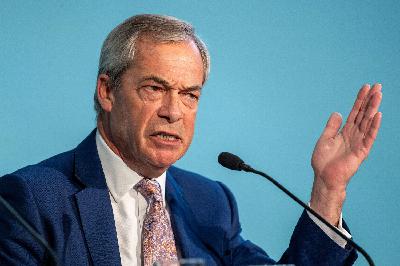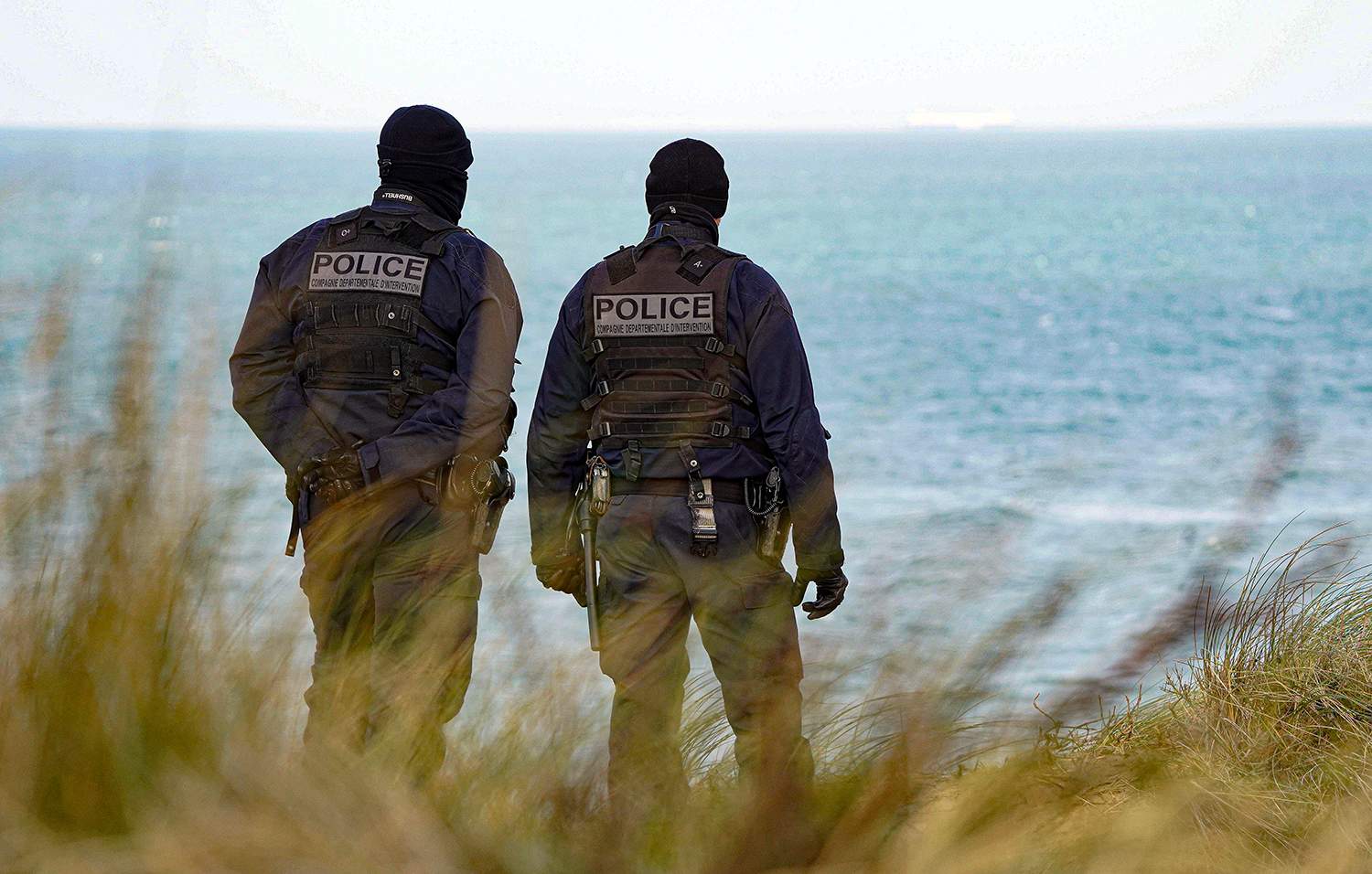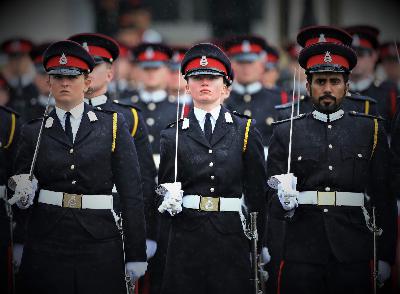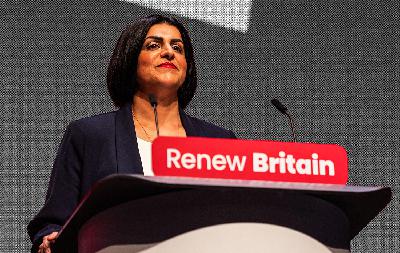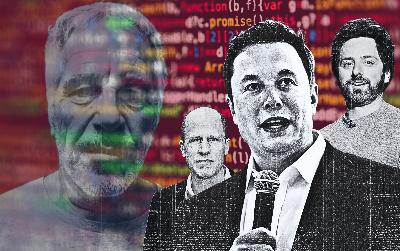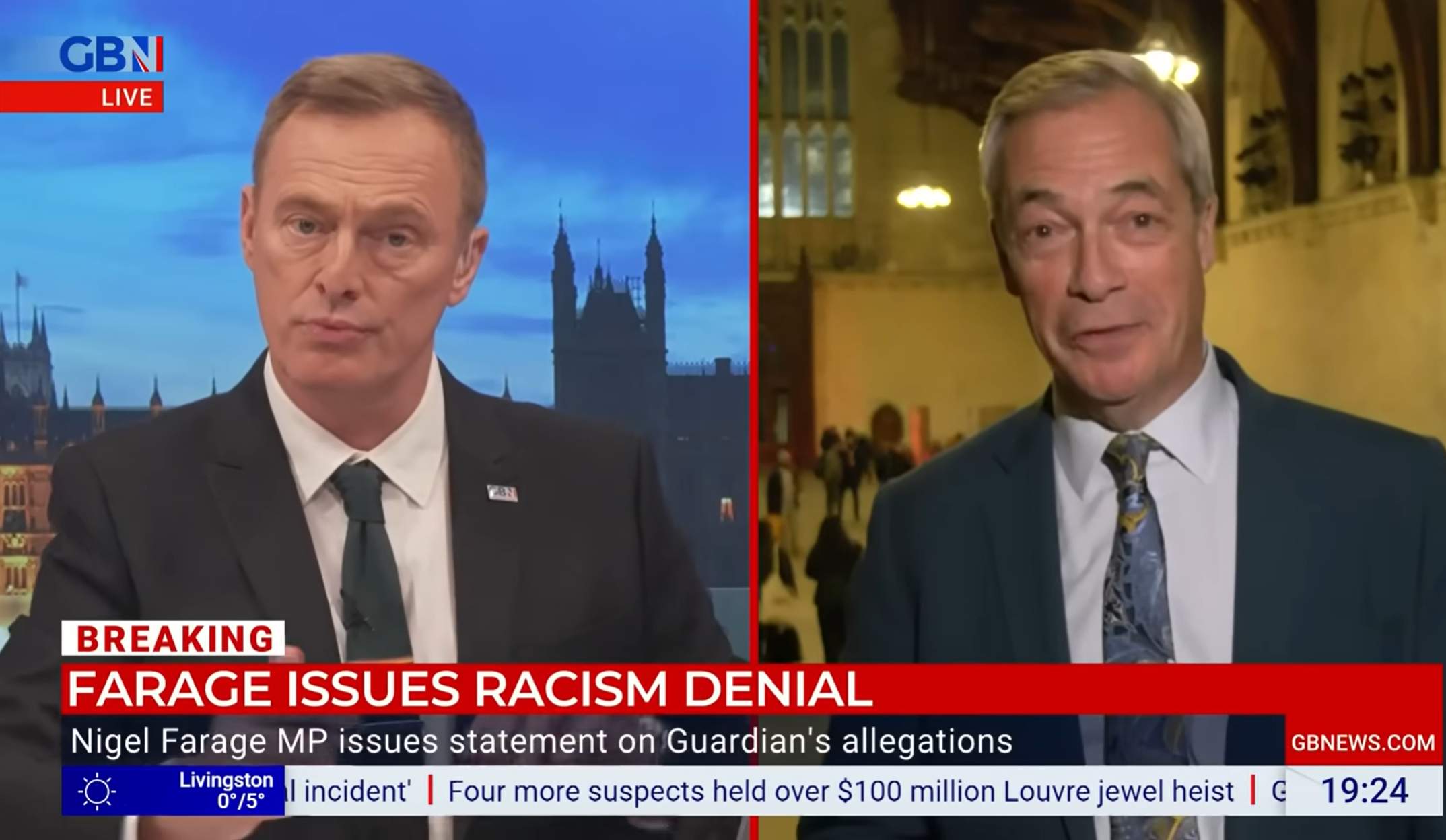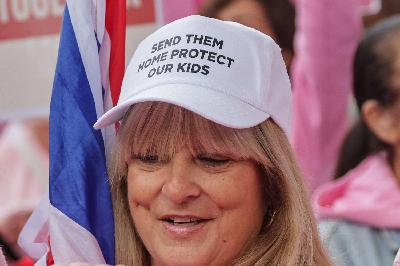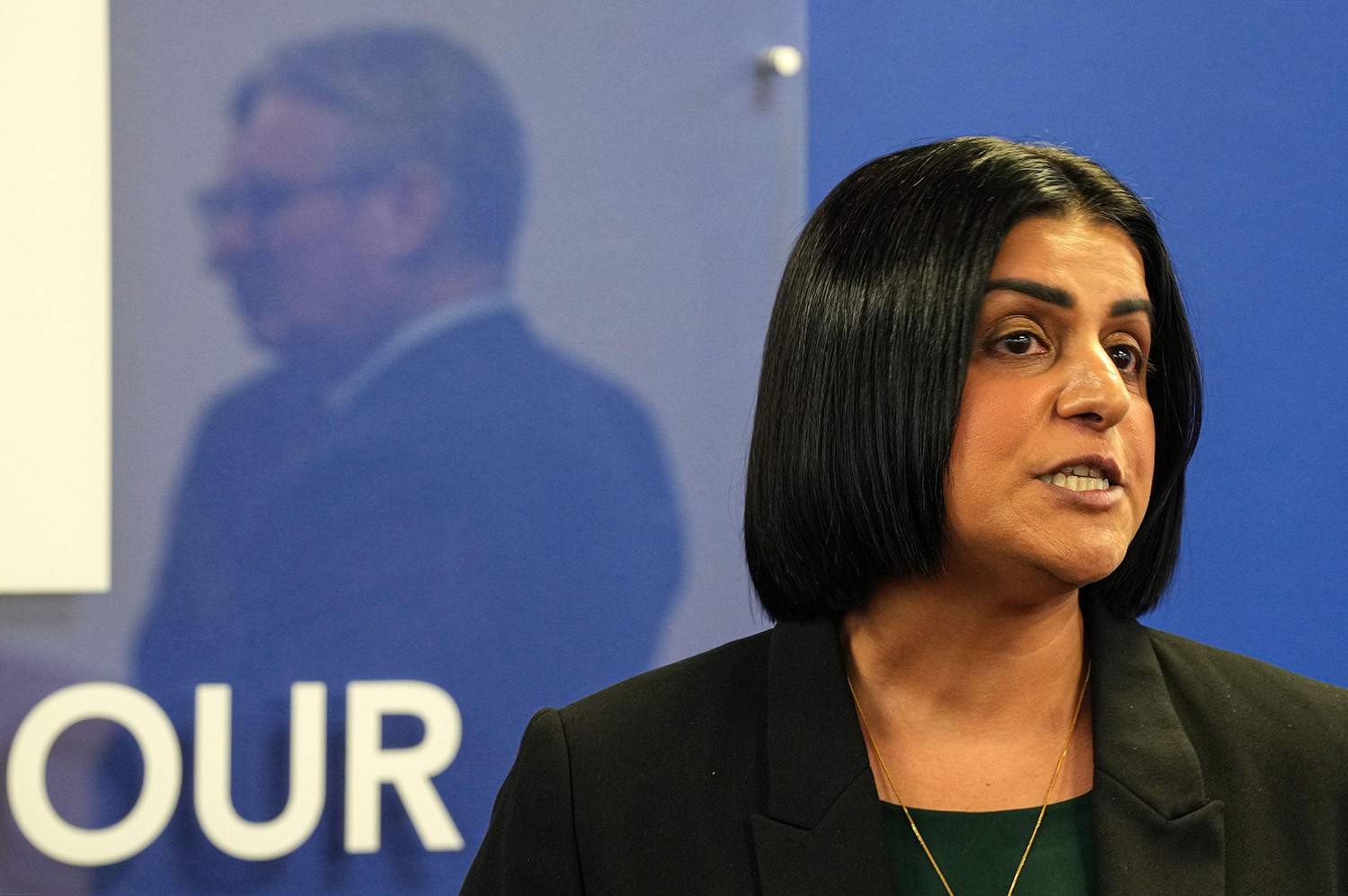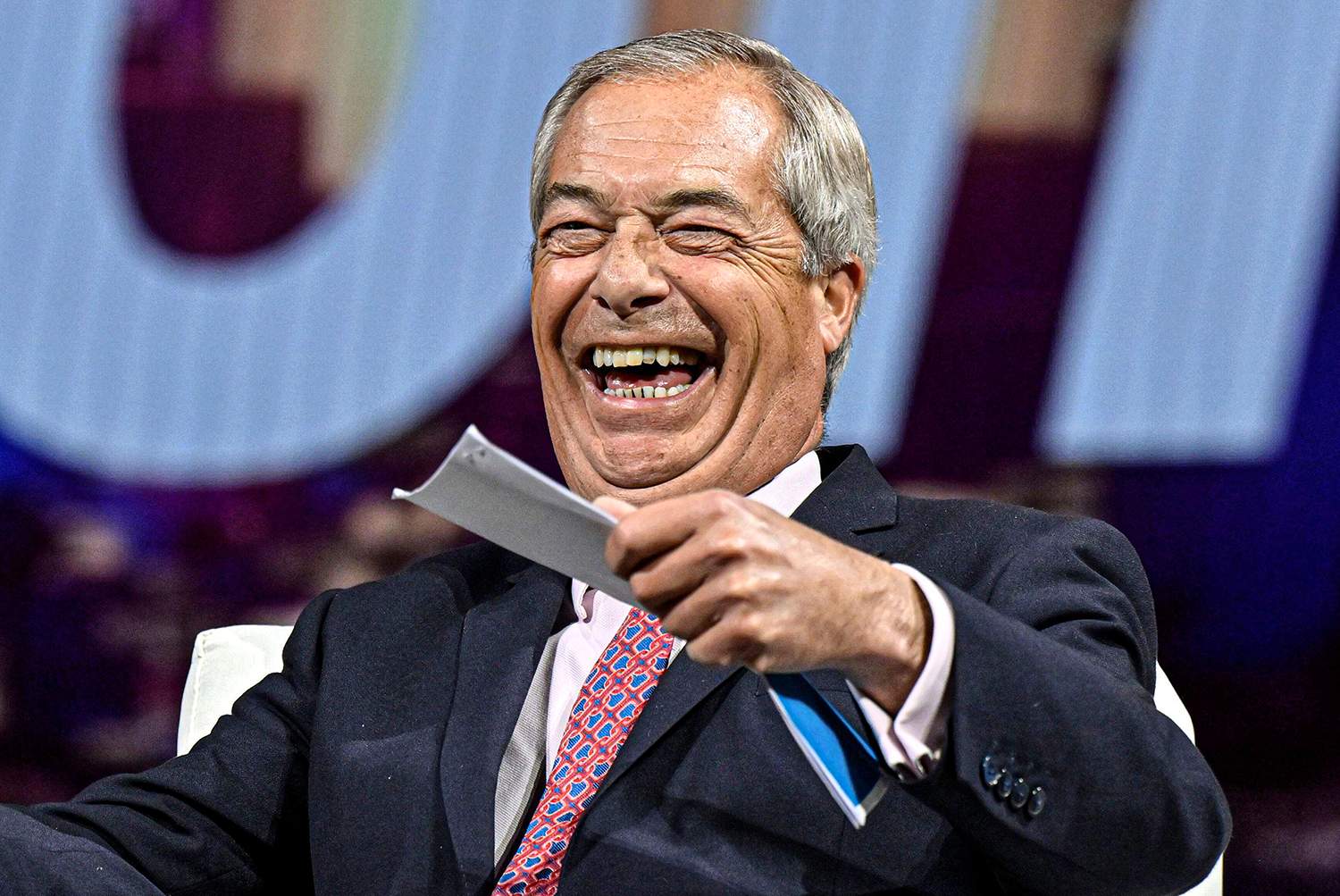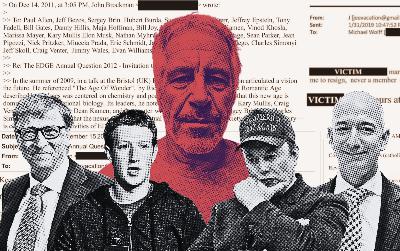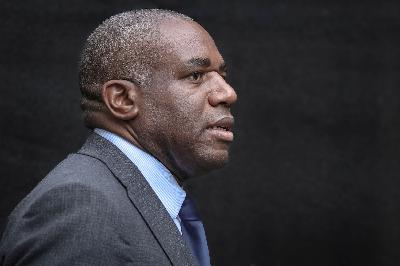Discover Byline Times Audio Articles
Byline Times Audio Articles

Byline Times Audio Articles
Author: Unknown
Subscribed: 49Played: 4,548Subscribe
Share
Description
The latest articles from Byline Times converted to audio for easy listening
1394 Episodes
Reverse
Read our Digital & Print Editions
And support our mission to provide fearless stories about and outside the media system
SUBSCRIBE TODAY
Members of the Trump administration are guilty of making the same mistake as backers of Brexit in the UK, in assuming other people share their own prejudices about the European Union. This perception bias has led the administration to conclude that Europeans are yearning to be "free" from the "shackles" of the EU, and that the US has a crucial role to play in achieving this.
In its recent National Security Strategy, the administration blames what it calls Europe's decline on the supposedly malign "activities" of the European Union, which it accuses of undermining political liberty and sovereignty, and imposing stifling over-regulation. It hints at its desire to break the bloc apart, in order to restore European nations' "individual character and history."
According to the defense analysis organization, Defense One, this aspiration is made even more explicit in a longer unpublished version of the NSS which it claims to have seen, which lists Austria, Hungary, Italy and Poland as countries the US should "work more with…with the goal of pulling them away from the [European Union]"
However, recent opinion polls confirm that across the EU, a majority of people still have a broadly positive view towards it, even in countries like those above targeted by the US.
An opinion poll conducted by the Pew Research Center in September revealed that among the nine member countries surveyed, seven-in-ten or more in Sweden, Germany and the Netherlands, and over half in Spain, Italy, Poland, France and Hungary, have a favourable view of the EU. The only country where views were more negative than negative was Greece.
Nigel Farage Accepts Another £135,000 From Gold Bullion Firm for Just 12 Hours Work
The Reform UK leader has pocketed £415,500 so far this year to act as the company's "Brand Ambassador"
Russell Scott
The same poll revealed that even in countries outside the EU many held a broadly positive attitude towards the bloc. In Canada, Nigeria, South Korea and Australia, roughly three-quarters had a favorable opinion of the EU. Six-in-ten or more agreed in five other nonmember countries, including the United Kingdom, and even the United States itself.
Views were more finely balanced in Argentina, Brazil, Israel, Mexico, Turkey and South Africa.
A similar poll conducted EU-wide earlier this year by the EU's in-house surveyor, Eurobarometer, revealed that over 74% of respondents think that their country benefits from EU membership - the best result ever recorded since this question was first asked in 1983. Figures ranged from a staggering 92% in Malta, over 90% in Ireland, Lithuania, Estonia and Denmark, to the lowest percentage in Bulgaria, at a still solid 61%.
In the same survey, 89% said they believed that more unity was crucial to tackle global challenges, with 75% or more citizens agreeing with this in every Member State.
Another poll conducted by the same organization this year found that over 70% of respondents in the 20 euro member states also believed that the euro was a good thing both for the EU and for their own country.
In a third poll, a majority of correspondents in nearly every EU member state supported further EU enlargement, with Ukraine the most favoured country for accession, provided it can meet the membership criteria.
Amongst those more sceptical about enlargement, concerns included uncontrolled migration (40%), corruption, organized crime, terrorism (39%) and the cost to European taxpayers (37%).
This suggests that the US administration may be onto something, when it highlights concerns in its NSS about Europe's stagnating economy, migration policies, and loss of self-confidence. But, just as Brexit was never the right solution to the UK's genuine domestic problems in 2016, when the Brexit referendum took place, so, breaking apart the EU would not resolve Europe's current ills.
Emp...
Read our Digital & Print Editions
And support our mission to provide fearless stories about and outside the media system
SUBSCRIBE TODAY
Nigel Farage has accepted another £135,000 from a firm selling gold bullion, for working just four hours per week over a three month period.
The latest register of interests published by the House of Parliament shows that the Reform UK leader continues to earn huge sums of money from second jobs outside his role as the MP for Clacton.
Farage, who acts as the companies "Brand Ambassador" is pocketing an eye-watering £11,250 per hour to push "tax-free gold".
This isn't the first time payment Farage has accepted from the Mayfair registered Gold merchants, Byline Times previously reported on two previous payments. £91,200 was paid to Farage in February 2025, which followed a a £189,300 payment from the same company in December 2024 - again for working a "maximum" of four hours per month, with some of the fee paying for some work "undertaken prior" to his election to Parliament.
In total the Reform UK leader has declared payments totalling £415,500 from Direct Bullion, a Mayfair-registered firm, which claims to be "the UK's No.1" Gold bullion dealer. The firm also had a large stand in a very prominent position inside Reform UK's recent party conference held in September and the Reform UK's logo has been affixed to the firm's website.
It comes on top of hundreds of thousands of pounds in payments for Farage's role as GB News presenter, revenue sharing payments from Elon Musk's X platform and earnings from his profile on the Cameo personalised video message platform.
The latest available accounts published on Companies House in October 2025 for DB London Ltd ,which trades under the name Direct Bullion shows the firm had just five employees as of 31 January 2025 and operates out of a shared office space in London, where over 100 other companies are also registered.
In June this year, DB London informed Companies House that the firm was now majority controlled by another company called Eleven Intl Ltd.
The registered address of Eleven Intl Ltd is in Ilford, and appears to be an accountancy company based above a supermarket. According to accounts filed in September 2025, Eleven Intl Ltd has no employees and only £96 cash in the bank as of 31 January 2025.
'If Nigel Farage's Racism Is Forgotten It Will Give Him Permission for Far Worse'
When someone tells you who they are, over and over again, it is wise to listen, argues Clive Lewis MP
Clive Lewis MP
In a recent interview with The Observer, Paul Withers the Co-founder of Bullion Direct said:
"I like Reform because I believe in what Nigel stands for. I worked bloody hard, and see a lot of what I worked hard for go to waste. The majority [of people are] seeing this - it's nationwide, and when I look at the proper alternatives, there's nothing there."
Withers told the paper that Farage was "a real goldbug" and "bringing the customers to us," claiming "It's done better than I ever anticipated."
Online customer reviews appear to support this claim, with some suggesting Farage's endorsement of Bullion Direct was the reason for them investing in gold. However, some customer reviews appear to be duplications despite being posted under different names and on different dates.
The Bullion Directory, which provides online reviews of Gold and Silver dealers in the UK currently lists Direct Bullion as the "top rated" seller in the country, however in some instances these reviews also appear to be duplicates. Two separate entries from April 2025 both use identical sentences to boast about their investments increasing by 50% in value and both repeat the same spelling mistakes.
Both Nigel Farage and Direct Bullion were approached for comment.
ENJOYING THIS ARTICLE? HELP US TO PRODUCE MORE
Receive the monthly Byline Times newspaper and help to support fearless, independent journalism that breaks stories, shapes the agenda and holds power to account.
PAY ANNUALLY - £3...
Read our Digital & Print Editions
And support our mission to provide fearless stories about and outside the media system
SUBSCRIBE TODAY
Up to a million people are still living in UK tower blocks covered in dangerous flammable cladding, some eight years after the Grenfell Tower fire, a damning report by peers reveals today.
The failure to resolve the issue, almost a decade on from the tragedy that killed 72 people in the tower block in West London, is partly blamed on failures by the new Building Safety Regulator (BSR) to speedily approve renovations.
The new agency was set up following the inquiry into the fire by Dame Judith Hackitt in 2018. However, instead of taking eight to twelve weeks to approve renovations to tower blocks, many cases take nine months and in one case 62 weeks -highlighted by lawyers Irwin Mitchell in written evidence to peers.
The Lords report also blames the building industry for the huge delays, saying there has been a shortage of newly trained skilled housing inspectors.
The peers say: "We heard consistent and repeated complaints that the BSR could take more than nine months to make decisions on whether construction projects should be allowed to go ahead, significantly longer than the statutory target of twelve weeks for these decisions.
"In many cases, this has delayed or disincentivised refurbishments, safety upgrades and the remediation of dangerous cladding in high-rise buildings, leaving residents in unsafe buildings for longer and increasing costs for leaseholders."
Keir Starmer's Government Is Funding 'Violence and Death' on the French Border, Say Human Rights Groups
Billions of pounds is being spent on anti-migrant measures which campaigners warn are contributing to dozens of deaths of vulnerable people seeking to come to the UK
Nicola Kelly
"Many applications are being rejected or delayed due to basic errors and applicants' inability to evidence how they are considering elements of fire and structural safety, which reflects poorly on the construction industry."
The campaign group Grenfell United told peers that up to one million flat dwellers are impacted by these delays and still living in unsafe conditions.
Labour Chair of the Industry and Regulators Committee, Baroness Taylor of Bolton said: "The tragic loss of 72 lives at the Grenfell Tower fire laid bare the urgent need to reform building safety regulation in England, particularly for high-rise buildings. The introduction of the Building Safety Regulator was a necessary and welcome step.
"However, the scale of the delays caused by the BSR has stretched far beyond the regulator's statutory timelines for building control decisions. This is unacceptable. We welcome that the Government and the BSR are now acting to try and make practical improvements, but this will not address the anxiety and frustration that residents and companies have experienced.
"It does not improve safety to delay vital remediation and refurbishments, nor to deter the delivery of new housing in high-rise buildings. We expect to see further action from the Government and the BSR to ensure that construction projects in high-rise buildings can be brought forward more quickly, without compromising on vital safety improvements."
The delays are bad news for the Government's plans to build 1.5 million homes by 2029, particularly in big cities where there are a large number of tower blocks.,
Peers were told The Greater London Authority's statistics on housing found that residential starts in London dropped from 48,745 new homes in 2022-23 to 27,543 in 2023-24. Residential starts in London fell further in 2024-25 to 21,026 - just 43% of the 2022-23 figure.
Some of the blame for these figures falls on the safety regulator.
Matt Voyce, Executive Director of Construction at Quintain, which is developing an 85-acre estate in Wembley Park, said that his experience of the BSR had been "challenging, frustrating and costly".
ENJOYING THIS ARTICLE? HELP US TO PRODUCE MORE
Receive th...
Advent Calendar
25 Times Nigel Farage Has Been a Gift to Vladimir Putin (chronological). Click a door to flip it.
1
2013
Byline Times: Farage lies about "meeting the Russian ambassador" Open story
2
31 Mar 2014
Guardian: relationship with Russian media comes under scrutiny Open story
3
1 May 2014
GQ (archived): Putin is the leader Farage most admires Open story
4
21 May 2014
HuffPost: Prince Charles Shouldn't Criticise Putin Open story
5
2014 (archived)
The EU provoked Russia's invasion of Ukraine Open story
6
16 Sep 2014
Farage sticks up for Putin in the EU Parliament Open story
7
Jun 2016
Politico: Obama "behaved disgracefully" by intervening in Brexit Open story
8
8 Sep 2016
Independent: RT offers Farage his own TV show Open story
9
1 Jun 2017
Politico: Farage calls Trump-Russia probe reports "fake news" Open story
10
1 Nov 2017
Newsweek: "Jews should concern Americans more than Russian influence…" Open story
11
12 Dec 2018
Byline Times: Farage's Lieutenant bribed by "Putin's man in Ukraine" Open story
12
12 Mar 2018
LBC: Farage on Salisbury/Novichok - UK "jumped the gun" Open story
13
6 May 2019
Guardian: Farage claims Russian intervention a "hoax" Open story
14
17 May 2019
Newsweek: Farage plays down Arron Banks' visits to the Russian Embassy Open story
15
10 Oct 2019
Guardian: Farage's MEPs vote against EU anti-Russian disinformation measures Open story
16
15 Feb 2022
Telegraph: "should not entertain NATO membership for Ukraine" Open story
17
24 Feb 2022
Independent: Russian invasion a consequence of EU/NATO "provoking" Putin Open story
18
21 Jun 2024
BBC: Farage says West "provoked" Ukraine war Open story
19
3 Jul 2024
Byline Times: Farage, bots and the 2024 election Open story
20
23 Mar 2025
Big Issue: Farage record on Ukraine Open story
21
March 2025
The Times: Zelensky should take Trump's minerals deal Open story
22
YouTube clip
TalkTV "Ukraine is corrupt" Open story
23
Oct 2025
Putin is a "bad dude" but Ukraine is corrupt Open story
24
16 Oct 2025
Bloomberg: It's still the fault of NATO and the EU Open story
25
Oct 2025
POLITICO Europe: "Putin is a very bad dude" Open story
Thanks to all our supporters who made suggestions for this. And those who, after it was published, suggested it should be called a Griftmas Card, with Russian oligarchs falling out of each window as they open.
Out of the Doom Loop
As well as bringing you the bad news, Byline Times is committed to bringing you the good, and looking for rays of hope in the New Year.
So subscribe for the new edition, hitting the doormats and shops next week.
Last Minute Christmas Gift
From Lady Mone, as told to Otto English*
*Lady Mone's opinions are her own, and are also in this case entirely fictional
Giftcards are 15% off with code: TISTHESEASON
Read our Digital & Print Editions
And support our mission to provide fearless stories about and outside the media system
SUBSCRIBE TODAY
I've held back from commenting on the revelations about Nigel Farage's past racism. Not because the story shocked me. For many in this country, it merely confirms what we've suspected for years. But some will be hearing these allegations for the first time, and it's to you that I want to speak.
Over the past weeks we've seen a steady stream of former classmates and teachers describe Farage's behaviour at Dulwich College: Nazi salutes, chants, anti-semitic slurs aimed at Jewish pupils, racist taunts at anyone who was not white. Some recall him saying "Hitler was right" or making jokes about gas chambers. Others simply describe a pattern of targeted, persistent abuse.
These are not new concerns. A teacher's letter from the early 1980s warned school authorities that the teenage Farage should not be made a prefect because of what she called his "racism" and "fascism". What is new is the political context. Farage is no longer just a fringe protest figure. He leads a party riding high in the polls, and he openly talks about expecting to walk into Downing Street.
The Government's 'Integrity Gap' Is Leaving the Door Open for Nigel Farage
By offering watered down Faragist rhetoric combined with a programme of managed decline, Keir Starmer's Government has left a political vacuum which the Reform leader is now stepping into, argues Labour MP Clive Lewis
Clive Lewis MP
Most of us have said or done things when we were young that we look back on with regret. That is part of growing up. We make mistakes, we cringe at our former selves, we learn, we change. Some of those early attitudes fall away. Others become the foundations of who we later become.
What is now emerging about Nigel Farage is not a single stupid comment or one heated moment. Former classmates are describing a pattern of behaviour. Not just a bully, but a racist bully of the ugliest kind, directing hatred at black and Jewish pupils as a kind of sport.
That does not automatically mean he holds every one of those views today. People can change. But when someone tells you who they are, over and over again, it is wise to listen. So look at his politics. Look at his rhetoric. Look at the company he keeps and the division he trades in.
For decades Farage has built his career on singling out migrants and minorities, from the infamous "Breaking Point" poster that depicted desperate refugees as a threat, to repeated claims that we are being "overrun" or that parts of Britain are no longer recognisably British. Look at Reform's immigration policy, which even the Prime Minister has felt compelled to call "racist" and "immoral". Consider his willingness to stand alongside and give cover to people in his own party who make openly racist comments, only distancing himself when public outrage forces his hand.
Taken together, it paints a picture of a man whose worldview did not grow out of those teenage foundations, but from them.
So, what does that mean now?
If you already oppose Farage, these stories will only harden your resolve. If you adore him, nothing I say will shift you. But there is a group of people I do want to reach: those considering voting for Reform.
I am not going to patronise you. I understand why many are thinking about it. If you have watched your pay stall, your bills rise, your community decline and your politicians shrug for years, you might well think: what have I got to lose? Why not give the system a kick? Why not try something different?
You may feel the country has taken a wrong turn. That we have lost something precious and need to put it right. You may feel that people like you have been talked down to, ignored, or written off.
Those instincts are not wicked. They are not inherently racist. They come from frustration, disappointment and a desire for dignity and control in your own life. I meet people every week who feel that ...
Read our Digital & Print Editions
And support our mission to provide fearless stories about and outside the media system
SUBSCRIBE TODAY
The UK Government's attempts to prevent migrants from crossing the Channel by small boat is leading to increased violence and death on the border, according to a new report published on Monday.
Humanitarian organisation Humans for Rights Network and charities working in the camps of northern France said that more than £650 million of British taxpayers' money is being used to fund police patrols and purchase surveillance equipment. This is then used to "instigate violent policies" on the UK's border with France, they said.
Last year was the deadliest on record, with at least 73 people dying on the border - more than in all other years put together.
NGOs working on both sides of the Channel say the French police routinely use flashballs, tear gas, including against children, and unleash police dogs to prevent migrants from boarding.
Chaos at the point of embarkation has been known to lead to people being crushed to death. Last year Sara, a 7-year-old girl, suffocated beneath a group of bodies while trying to board a dinghy bound for Britain. Campaigners say the UK is responsible for deaths like these because it is funding violence perpetrated by the French riot police.
The 'Pink Ladies' Laundering Anti-Migrant Views Into the Mainstream
An anti-migrant movement backed by Reform and Conservative politicians and regularly invited onto news channels is funded by a far-right group and has platformed a Neo-Nazi activist
Nicola Kelly
Since 2018, Britain has spent more than £3.5 billion on private sector company contracts designed to 'secure' the border with France. A further £476 million was pledged in 2023, to provide surveillance equipment and personnel, including drones, helicopters and patrol officers. More than £100 million has already been given to France for the 'one in, one out' scheme to return migrants there, and to bring those who have been accepted to Britain.
Earlier this year, French Interior Minister Bruno Retailleau said that of 1,200 law enforcement officers at the border each day, 730 are paid for by the UK government.
Alongside the perils faced while boarding boats, the French Government's policy of arresting those in the camps on 'no fixed abode' charges also leads to widespread violence, the report states. One group, Human Rights Observers documented over 800 evictions at the border in 2024, affecting at least 16,365 people. Belongings confiscated during these operations include medication, prescriptions and asylum claim documents.
Organisations working in northern France say police brutality is commonplace, with one, Utopia 56, recording 680 incidents of violence outside of crossing attempts between March and September 2025.
Moussa, who lived in the camps of Calais until recently, said: "The police there are like soldiers but without guns - it's like a war."
Charities say migrants rarely report police brutality due to lengthy and unworkable processes.
"It's not right what the police did. But we're not going to complain. Who are we going to complain to?" said Jamal, who witnessed violence on the northern France coastline.
This year has seen the closure of several safe routes to the UK, including refugee family reunion and some resettlement schemes. Campaigners and charities argue that the lack of alternative routes makes it more difficult for those on the move to seek asylum, risking increased police violence. It also allows smuggling networks to proliferate.
At least four people are known to have been shot dead in and around Dunkirk so far this year. In one documented incident, an autistic 16-year-old boy had a gun held to his head by smugglers.
"What's complicated in Dunkirk is that the mafia is very present," said an employee of Medecins du Monde working in the camps. A climate of tension and violence has really been accentuated over the past two or three years. We regularly...
Read our Digital & Print Editions
And support our mission to provide fearless stories about and outside the media system
SUBSCRIBE TODAY
Britain's Army is shrinking to its smallest size since the Napoleonic wars, struggling to recruit and unable to modernise at the pace its own commanders say is required. Yet despite this contraction, new Ministry of Defence (MoD) figures obtained by Byline Times suggest that the UK is quietly extending its global reach by sending military reservists into more countries than at any point in recent history.
The FOI disclosure reveals that 612 reservists were deployed overseas last year, entering what the MoD classifies as a "deployment theatre" for more than 24 hours in 51 countries and territories. It is an unusually broad global footprint for the modern Army Reserve - particularly for a force shrinking to its smallest size in two centuries - and one the Government has offered no public explanation for.
The MoD will not say what these part-time soldiers were doing, under whose authority they were sent, or why some missions took place in states that have no publicly declared UK military interest. When asked whether reservists had also been deployed to other, undisclosed countries, the department issued a "neither confirm nor deny" response - the phrasing normally reserved for sensitive or clandestine operations.
In a previous FOI disclosure, the MoD listed Iran as a deployment location before withdrawing the claim once Byline Times asked for clarification.
EXCLUSIVE
How Epstein Channelled Race Science and 'Climate Culling' Into Silicon Valley's AI Elite
The Epstein files expose how racial hierarchy, genetic "optimisation" and even climate-driven population culling circulated inside Big Tech circles
Nafeez Ahmed
It leaves a striking contradiction at the heart of British defence: as the Army contracts, its overseas activity appears to be quietly expanding, pushed into opaque theatres with little democratic scrutiny and few safeguards for accountability.
These revelations come at a moment when the military is facing scrutiny over a murder-rape case in Kenya and allegations that UK Special Forces carried out unlawful killings in Afghanistan - abuses senior officers stand accused of concealing.
This month, Kenya's parliament delivered a very clear warning of what happens when overseas deployments drift beyond scrutiny. A sweeping year-long inquiry into the British Army Training Unit Kenya (BATUK) has accused troops of decades of abuses, from sexual violence and fatal accidents to environmental damage and the negligent handling of unexploded ordnance. All of this seems to be shielded by a veil of diplomatic and military immunity that allowed grievances to fester for generations.
Kenyan lawmakers described BATUK's refusal to give evidence as showing an entrenched culture of impunity. This echoes patterns seen elsewhere in Britain's military footprint from Iraq to Afghanistan: allegations initially dismissed, investigations obstructed, civilian harm minimised, and accountability delayed and denied until the political cost becomes impossible to ignore.
Where They Went
The MoD's list spans NATO allies, conflict zones and several states where the UK has no obvious strategic interest. A handful of deployments follow familiar patterns of deterrence or alliance maintenance. Others sit far less comfortably, resembling the routines of a vanished Empire that persist more through inertia than declared strategy. The Gulf features prominently - unsurprising given long-standing security partnerships and the region's role as a major purchaser of British defence equipment. Eastern Europe also appears heavily on the list, consistent with the UK's efforts to signal resolve against Russia following the invasion of Ukraine.
Yet interspersed among these are countries where the UK's interests feel, at best, opaque.
Cape Verde, Djibouti, Lebanon, the Maldives: each appears on the MoD's ledger with no accompanying explana...
Read our Digital & Print Editions
And support our mission to provide fearless stories about and outside the media system
SUBSCRIBE TODAY
In December 2025, the European Commission fined X €120 million under its new Digital Services Act (DSA) - the EU's flagship online safety law, which requires the biggest platforms to be transparent about how they amplify, advertise and police content. It was the first ever non-compliance ruling under the DSA, and it focused on three design choices at the heart of Elon Musk's version of X: a deceptive paid blue-check system, an opaque advertising archive, and the platform's decision to shut out researchers.
Those are not abstract compliance failures. They are exactly the structural weaknesses that covert foreign influence operations have been exploiting on X.
The recent exposure of covert foreign influence via imposter accounts on X is jarring enough as it is, but a closer look reveals an even more concerning reality: these accounts did not flourish in spite of the platform's policies, but because of them.
When Elon Musk bought Twitter in 2022, he promised a new era of "free speech," an end to bots, and a more transparent information ecosystem. Instead, the platform he renamed "X" has become a near-perfect environment for foreign-run political influence operations.
While these problems predate Musk, the architecture he built - notably the monetisation of engagement, the destruction of identity verification, aggressive cuts to trust and safety, and a recommendation system that amplifies right-wing outrage - has turned X into one of the most permissive, profitable, and low-risk environments in the world for foreign operators seeking to infiltrate US political discourse.
With the recent revelations about foreign-run MAGA and "patriot" accounts, we now have the clearest evidence yet that Musk's policy changes are facilitating - and in some cases, even monetising - foreign influence and disinformation.
EXCLUSIVE
How Epstein Channelled Race Science and 'Climate Culling' Into Silicon Valley's AI Elite
The Epstein files expose how racial hierarchy, genetic "optimisation" and even climate-driven population culling circulated inside Big Tech circles
Nafeez Ahmed
From Verification to Monetisation
Suddenly, the perception of legitimacy associated with the checkmark was available to anyone willing to pay a small amount of money. Among the recently-exposed fake MAGA accounts, many were willing to do just that. In a sample of 22 of the most influential foreign-run fake MAGA accounts, nearly all (19 accounts, or 86%) have a blue checkmark, indicating that they are paying to be Premium users and therefore are eligible to apply to participate in X's content monetisation program, which allows influencer accounts to earn money from their content based on the levels of engagement they receive from other Premium users.
Accounts with Premium subscriptions also get algorithmic priority, which in practice means their posts have greater reach and higher engagement than non-Premium users - so more people see their posts and more money can be made based on their greater reach.
The engagement-based monetisation system introduced by Musk incentivises outrage bait, disinformation, and other problematic content that large numbers of people react to and engage with. Under this unprecedented scheme, anyone, anywhere in the world, can profit from divisive or false content designed to drive wedges between Americans and Europeans, with no regard for things like quality or truthfulness. It's no coincidence that the fake MAGA accounts posted frequently about hot-button topics like immigration, isolationism, and culture war issues.
These same design choices are now at the centre of the EU's €120 million penalty, which found that X's paid blue-check system misleads users about who is "verified", exposes people to impersonation and scams, and undermines transparency around political and issue-based advertising.
Dismantling Trust an...
Read our Digital & Print Editions
And support our mission to provide fearless stories about and outside the media system
SUBSCRIBE TODAY
Downing Street's electoral strategy is no longer a mystery. Labour's leadership has decided the safest route to power is to narrow politics to the smallest possible space: mimic just enough of Reform UK's rhetoric to neutralise them, reassure the bond markets, and run out the clock.
This is not a strategy of renewal. It is crisis management masquerading as competence. And the public can already see through it.
The latest polling from More in Common makes that unmistakably clear. When voters were asked which party they are most likely to vote against, Labour came first. For a governing party at the start of a term, this should set every alarm bell ringing. Voters are not rejecting bold reform or ideological ambition. They are rejecting the absence of it. They see a party that promised a decade of national renewal, but is offering a programme indistinguishable from managed decline.
The Autumn Budget only confirmed the problem.
In Parliament, I welcomed the necessary steps: ending the two-child limit, modest moves towards taxing wealth, a rise in the minimum wage. But these are tactical concessions, not a governing strategy. They do not confront the structural drivers of Britain's crises: monopoly extraction, climate-driven inflation, a decade of stagnant wages, and an economic model where unelected financial markets hold more authority over national policy than Parliament itself.
As I said in the Commons, repainting the wallpaper does not fix the walls. And this Budget did not even acknowledge the foundations.
The Integrity Gap: How We Built the Authoritarian Future We Fear
Labour MP Clive Lewis argues that the collapse of public trust in Government is the product of corporate power being wired into the architecture of the state
Clive Lewis MP
Meanwhile, the political landscape is shifting beneath Labour's feet. For the first time in years, Nigel Farage's carefully crafted public image is cracking. Former classmates describe not a momentary lapse in judgement, but a pattern of racist bullying so severe it shaped the culture of their school. Indeed, these accounts reveal a man whose teenage cruelty seems less like a phase and more like a blueprint for his future-self.
This should be an open goal. A moment to expose the gulf between Farage's performative plain-speaking and the worldview beneath. A chance to persuade those Reform-curious voters who feel abandoned by an economic system that extracts from them while political elites swap places and call it change.
But Labour's leadership cannot seize this moment - because it cannot credibly speak to the failures it has chosen to imitate.
You cannot call out Farage's divisive politics while borrowing his language on migration and asylum.
You cannot promise economic dignity while refusing to challenge the extractive model that keeps millions in insecurity.
You cannot build trust with disillusioned voters while clinging to the very managerialism they believe has failed them.
This is Labour's integrity gap - and it is now a structural weakness.
People feel something deep is wrong in Britain. They feel their wages stagnating while prices surge; their rent climbing while housing becomes ever more precarious; their energy bills rising while privatised monopolies post record profits. They watch water companies pollute rivers with impunity. They watch their children's futures shrink. They watch politicians change, but the model that fails them stay exactly the same.
These instincts are not ignorant or extreme. They are rooted in a decade of lived reality. And if Labour does not offer a coherent alternative, others will fill the void.
Because Britain's renewal depends on recognising who actually keeps the economy alive. SMEs, sole traders, co-operatives, family farms, local manufacturers and community enterprises have been crushed between rising costs and ...
Read our Digital & Print Editions
And support our mission to provide fearless stories about and outside the media system
SUBSCRIBE TODAY
With her appointment in September as Home Secretary, Shabana Mahmood has become one of the country's most senior politicians, responsible for tackling migration, refugees and policing, core challenges for the Starmer Government.
A self-declared social conservative - "If you were trying to put me in a box you would say social, small-c conservative," Mahmood admits to a "natural affinity for the faith, family and flag element of Blue Labour." Her appointment was seen as another triumph for Starmer's Chief of Staff and behind-the-scenes kingmaker Morgan McSweeney.
Unsurprisingly, her appointment was met with acclaim by the Blue Labour leadership. Maurice Glasman called the move "fantastic", compared Mahmood to Elizabeth I and declared, "she's now clearly the leader of our part of the party" while Jonathan Rutherford with hyperbolic exaggeration hailed her as "perhaps the most astute and able politician of her generation". Yet, until now, she had remained unknown to most Labour supporters and the wider public. So what do we know about her politics?
What is Her Background?
Mahmood's grandparents came to Birmingham for work from Azad Kashmir in the 1960s. Her father was a civil engineer who worked in Saudi Arabia where Mahmood lived for the first seven years of her life. She then lived and went to school in Birmingham before gaining a place at Oxford University, where she took a degree in law. She then worked as a barrister until her election as Labour MP for the safe seat of Ladywood in inner-city Birmingham in 2010. She had no discernible track record of political activity prior to her selection but her dad was the chair of the Birmingham Labour Party. In the words of one long-standing, local councillor, "she was manoeuvred into the seat."
In her maiden speech she proudly promoted the diversity of her constituency and gave a clear, positive definition of multi-culturalism. "…..while the people of my constituency might have come from different places, the destination they seek is the same - a place of greater opportunity and the same chance as everyone else to succeed."
She recalled how "My grandfather came to this country from Pakistan in the 1960s. He worked long hours on a low wage and made sacrifices so that his family could access greater opportunity." She paid tribute "…to the successes of the Labour party and the Labour Government, who created the opportunities that made my family's journey and that of so many ordinary hard-working families possible. I believe that opportunity and the chance to fulfil one's aspirations is the birth-right of every one of our citizens."
The 'Pink Ladies' Laundering Anti-Migrant Views Into the Mainstream
An anti-migrant movement backed by Reform and Conservative politicians and regularly invited onto news channels is funded by a far-right group and has platformed a Neo-Nazi activist
Nicola Kelly
The Hostile Environment Revisited
As Home Secretary Mahmood had an opportunity to make her grandparents' aspirations come true for successor generations of migrants. Instead, she is aping recent Tory predecessors in her role - Theresa May, Priti Patel, Suella Braverman - by instituting a "hostile environment" for them. On 29th September as Home Secretary she announced a new contribution-based settlement model to reduce net migration, boost integration and reduce pressure on public services.
This stated that "To ensure people contribute to the economy and society before being able to settle in the UK, under the new model they will have to be lawfully resident in the UK for the minimum of 10 years, double the current period." Furthermore she set out tough new criteria for gaining indefinite leave to remain in the UK, including learning English to a high standard - defined in other briefings as equivalent to A level - not having taken any state benefits, and giving bac...
Read our Digital & Print Editions
And support our mission to provide fearless stories about and outside the media system
SUBSCRIBE TODAY
For two decades, Jeffrey Epstein moved through the private networks that shaped modern Silicon Valley - even after his sex-offending conviction.
Newly released House Oversight Committee files, combined with a deep review of archived material, reveal how his money, ideas and relationships flowed into the founders, labs and political circles now defining America's new tech order.
Part One of this exclusive three-part investigation explores how Epstein was embedded in the Silicon Valley 'Broligarchy' brains trust. Part Two uncovers how Epstein intersected with pivotal moments in Bitcoin. Part Three, the channelling of an apocalyptic vision of climate 'culling' and eugenics.
Newly released Jeffrey Epstein files reveal that an apocalyptic worldview - blending racial hierarchy, genetic "optimisation" and even climate-driven population culling - was circulating inside the elite, founder-linked networks shaping Silicon Valley's rise.
These ideas appear most starkly in the convicted sex offender's private exchanges with the AI theorist Joscha Bach, and sit alongside the longtermist and transhumanist philosophies championed by other influential figures in the same circles.
Joscha Bach, whose work on cognitive architectures and machine consciousness has shaped advanced AI research and influenced figures such as Elon Musk, appears in the documents engaging Epstein in sweeping discussions about race, hierarchy, genetic engineering and the supposed 'utility' of mass death, including under conditions of climate stress.
Meanwhile, another philosopher whose ideas underpin much of modern longtermism and whose work helped shape Silicon Valley's early thinking on artificial general intelligence, Nick Bostrom, moved through the same intellectual and institutional ecosystem.
His published arguments on eugenics, selective population strategies and existential "optimisation" reveal a parallel strand of thinking within that milieu, financed and legitimised by many of the same networks.
Both men were also financed by Epstein.
Taken together, the Bach correspondence and the longtermist ideas circulating in this environment show that human hierarchy, population thinning and genetic destiny were not fringe provocations, but part of the ambient intellectual air inside the circles designing the next generation of AI.
How Trump's 'Reverse Algorithmic Capture' Is Creating the Unseen Curators of Our New Digital Realities
The US Government is shaping by - by stealth - the emergence of a privatised information infrastructure that serves its ideological aims. Caroline Orr reports
Caroline Orr
Epstein and the Radicalisation of the Silicon Valley Mind
Previous excellent reporting by the Boston Globe first brought to light Bach's exchanges with Epstein, but focused narrowly on some of Bach's comments in isolation. What has been missing - and what this investigation provides for the first time - is a clear view of how these ideas moved through Epstein-funded institutions, longtermist organisations and the AI networks now exerting growing influence over Silicon Valley's emerging political order.
One of the most revealing documents in the House Oversight Committee's Epstein archive is an email chain from the same month that Trump won the Republican nomination as presidential candidate in July 2016 - between Jeffrey Epstein and the cognitive scientist Joscha Bach.
This was eight years after Epstein's conviction for soliciting a child following a major criminal investigation into wider sex trafficking allegations. At this time, Epstein was in regular communication with Peter Thiel, who that month would endorse Trump at the Republican National Convention.
By this point, Bach was an integral member of the Edge Foundation - the network of Silicon Valley elites founded by John Brockman but principally funded by Jeffrey Epstein, who, as B...
Read our Digital & Print Editions
And support our mission to provide fearless stories about and outside the media system
SUBSCRIBE TODAY
GB News presenters and guests have been accused of circling the wagons to protect their colleague Nigel Farage from allegations that he engaged in racism and anti-semitic bullying towards Jewish and other ethnic minority peers while a teenager.
An analysis from the campaign group Stop Funding Hate has found several instances of GB News presenters and guests downplaying the allegations against Farage or even going as far as to insult the alleged victims of his teenage bullying.
Allegations of schoolboy racism against Farage are not new, with the claims recurring throughout his political career, however Farage has been under fire over recent more detailed allegations of anti-semitic bullying against his schoolmates for the last few weeks, following a Guardian report which included new testimony from the film director Peter Ettedgui.
Ettedgui alleged in the Guardian that Farage "would sidle up to me and growl: 'Hitler was right,' or 'Gas them,' sometimes adding a long hiss to simulate the sound of the gas showers," while they were both at Dulwich College in the 1970s. The Guardian reports that it has spoken to twenty people who recall racist and antisemitic remarks that he made during the ages of 13 and 18.
UPDATE
GB News Downplay Revelations About Trump's Epstein Links as Presenters Echo White House Spin
The channel was criticised by media reform campaigners for its "fawning" interview with the President as it dismissed revelations of his extensive ties to Jeffrey Epstein
Josiah Mortimer
Farage is a presenter on GB News and has pocketed £412,142 from his role at the broadcaster in the last year. Reacting to the allegations, GB News presenters and guests downplayed the allegations or insulted those making them, Stop Funding Hate found.
In an interview with Farage on 25 November, presenter and former MEP for the Farage-led Brexit Party, Martin Daubney stated: "the accusations of anti-semitism, isn't it fair to point out that you've been a very vocal supporter of Israel and the Jewish community since October the 7th, 2023?".
Following the interview Daubney then offered multiple defences of Farage. Responding to guest Jo Phillips highlighting inconsistencies in Farage's responses to the scandal he stated: "He's repeatedly said… it's categorically untrue. We know Jo, he denied it yesterday. He denied it today. He's denied it on camera tonight. If there was any substantiated evidence to corroborate these claims, surely it would have come to light by now. This is simply a case of one person's recollections against another".
While discussing the story with his guests Daubney also offered the defence that "didn't anybody and everybody say racist things?"
The next day presenter Bev Turner also appeared to defend Farage stating: "Nigel said there, Katie, you know, this is politically motivated". She suggested that the allegations were the result of "the uniparty" and collusion between the mainstream parties to attack Reform UK.
Turner then turned to her guest and said "when you watch this, Mally, do you think how ridiculous the British media is?".
The defences of Farage by GB News presenters, who are also his colleagues, has prompted criticism of the broadcaster. Tom Chivers, a Research Associate in Media and Communications, at Goldsmiths University told Byline Times: "This is a shameless campaign by GB News to dismiss despicable anti-Jewish racism, circling the wagons to protect their idols at the heart of the UK's right-wing media-political class. GB News' failure to take antisemitism seriously is another disgraceful example of the channel's built-in bigotry, shown time and time again with its attacks on Muslims, the LGBT community and other marginalised groups".
Chivers added: "For years GB News has baselessly accused left-wing politicians, public figures and peaceful protestors of racism against Je...
Read our Digital & Print Editions
And support our mission to provide fearless stories about and outside the media system
SUBSCRIBE TODAY
Two British Prime Ministers gave foreign policy speeches recently. Only one of them was any good. Unfortunately, it was not the speech given by the current Prime Minister, Sir Keir Starmer.
Starmer's address to the Lady Mayor of London's Banquet at the Guildhall on Monday was a patchwork quilt of small ideas, sown together, like a student essay, with a few "buts", "becauses" and "moreovers", to make it sound coherent. It was a dog's breakfast. Mutton dressed as lamb. A litany of false boasts, ambitious claims, non-sequiturs, and dodges around the hard questions.
No matter how many times Starmer inserted the word "so" into his speech, the speech lacked persuasive logic, or honesty about Britain's current status on the world stage.
It did correctly acknowledge that the UK has to try to navigate its way between today's three global giants - the US, the EU and China. But in all three cases, Starmer exaggerated how well we are doing, and underplayed the extent of the challenges.
Starting with the EU, Starmer made perhaps his frankest acknowledgement that Brexit had been a mistake. He said "how it was sold and delivered was wrong. Wild promises were made to the British people and not fulfilled. We are still dealing with the consequences today, in our economy, and in trust - in the degradation of political debate."
The 'Pink Ladies' Laundering Anti-Migrant Views Into the Mainstream
An anti-migrant movement backed by Reform and Conservative politicians and regularly invited onto news channels is funded by a far-right group and has platformed a Neo-Nazi activist
Nicola Kelly
But, he framed the argument as if it was still merely how Brexit was delivered which was the problem, rather than the very decision to leave the EU itself. He also shied away from even his more limited argument's logical conclusion, which is that the UK should try to renegotiate major parts of the Brexit deal, to get better terms, including by lifting his own party's redlines on rejoining the Customs Union or Single Market.
Instead, he continued to claim that it was enough to tinker around the margins of the existing Brexit deal, making the exaggerated claim that the Government had successfully "redefined our bond with the EU, building a new partnership that benefits both sides, sticking to our red lines while supporting British businesses, making food cheaper, and slashing red tape."
This flies in the face of the mounting body of evidence that Brexit has been an economic disaster, even with the small modifications achieved by the government so far. The US think tank, the National Bureau of Economic Research, recently published a study estimating that the decision to leave the EU had reduced the UK's GDP by between 6 to 8 percent. Another recent analysis, by the House of Commons library, estimated that Brexit is costing the Treasury up to 90 billion a year in lost tax revenue, and that it has cost the average British resident between 2,700 to 3,700 pounds per year.
Even the Times and Telegraph are now publishing articles acknowledging Brexit has been, in the words of Jeremy Warner for the Telegraph "an unmitigated economic failure." In the Times, Ryan Bourne, who described himself as one of the members of the small band of "Economists for Brexit" argued that it was time to face facts. "Brexit did not cause Britain's growth malaise, but it undoubtedly deepened it. Nor did it create our fiscal woes, though it worsened them too. Denial about this helps no-one. Indeed, a successful sovereign economic policy demands taking responsibility and facing the world as it is, not as we wish it to be."
But despite these about-faces, Starmer continues with the pretence that the UK can make Brexit a success, as long as it just engages with the EU bloc more skilfully.
This denial of reality extended to his remarks regarding the US. Starmer hail...
Read our Digital & Print Editions
And support our mission to provide fearless stories about and outside the media system
SUBSCRIBE TODAY
There was fervour in Chelmsford's Tindal Square - and a sea of pink. Hot pink berets. Baby pink Union Jack flags. Dogs with pink rain jackets. This was the 'Pink Ladies' protest, an anti-migrant group who portray themselves as being ordinary women trying to "save our kids".
The organiser of last week's rally was Orla Minihane, Reform UK's vice-chair for Epping Forest who previously shared a stage with a member of a neo-Nazi group. Taking to the microphone, she listed five women who she said had been murdered "at the hands of an illegal migration catastrophe". Behind her, pictures of the women were held up.
An incensed Minihane had a message for the Government. "We are not going to be sacrificial lambs to your multicultural nonsense anymore… They are coming in in their thousands everyday. Why should we have to live like this? We are under attack."
The Pink Ladies was set up in June, following a series of protests against the Bell Hotel in Epping. During one of those rallies, Minihane spoke on stage and shared a microphone with Callum Barker, a member of Neo-Nazi group Homeland, a splinter organisation from Patriotic Alternative, Britain's largest far-right group.
EXCLUSIVE
The Reform-Backed Far-Right Street Patrols Coming to British School Gates
EXCLUSIVE: Nationalist vigilante groups, with links to Neo-Nazis, and the support of senior Reform figures, have been falsely claiming police backing while attempting to infiltrate local school networks
Nichola Lashmar
In her speech, Minihane is heard saying "If I've got to wear a far-right title because that's what the narrative is, then so be it." The speech was then shared by prominent voices such as Mark Collett and Homeland itself. Minihane said she had no knowledge of Barker's views before appearing alongside him.
The Pink Ladies are also financed by Restore Britain, the far-right group founded by former Reform UK member Rupert Lowe, who was sacked following allegations of threats of physical violence against Zia Yusuf.
Lowe has said that Restore provides funding for all street protests including the stages, sound systems and speakers, with promotional material carrying joint branding with Restore. Pink Lady organisers also told Byline Times that Lowe helped to get the group trademarked and that his movement provides legal advice and support. Despite their links to Restore Britain, organisers maintain they are not a far-right organisation.
Last month a motion was brought forward by two Labour councillors in Tower Hamlets, Mufeedah Bustin and Abdi Mohamed, who stated that "far-right extremists "were leading this movement "under the banner of keeping women and children safe". In response, the Pink Ladies took to the streets again, this time in Whitechapel, in the heart of Tower Hamlets.
The organisation has consistently protested against Mayor of London Sadiq Khan, attempting to enter the building earlier this month during an investigation session into grooming gangs and blaming him for the rise in immigration.
Despite their links to the far-right, the group has also received the backing of prominent Conservative politicians.
At the time of their protest against Khan, Susan Hall, the leader of the Conservatives on the London Assembly and the party's former mayoral candidate posted on Facebook, saying the Pink Lady protests was "not hate crime and it's certainly not terror-related". Hall has previously been found supporting Enoch Powell on social media, engaging in Islamophobic posts about Khan, and sharing conspiracy theories about the 2020 American election. She is also on the advisory board of Restore Britain. At a recent protest, she said: "I am here because I am a Pink Lady."
Despite all this, The Conservative party did not respond to questions from Byline Times about Hall's activity.
The group has also been given multiple platforms by broad...
Read our Digital & Print Editions
And support our mission to provide fearless stories about and outside the media system
SUBSCRIBE TODAY
Reform UK has received the most donations of any political party by far so far this year according to data released on Thursday by the Electoral Commission.
Over the last quarter Reform UK was the biggest recipient of political donations out of any UK political party by a long way. At a total of £10,293,511, Reform received almost four times the donations of Labour (£2,190,340) and more than twice those of the Conservatives (£4,662,110).
Although Reform had reportedly been struggling to raise funds earlier this year, the £10.2 million takes them one quarter of the way to their stated goal of a £40 million war chest to prepare for the next general election.
Donors to Reform included £490,000 across two donations from the party's treasurer and billionaire property developer Nick Candy. Candy has been charged by the party with the task of leveraging his contacts and experience to fundraise. Earlier this year Candy told the Financial Times that there were several billionaires waiting in the wings to join Reform. At the time, Reform's intake of donations seemed lacklustre and it was reported that they were struggling to fundraise.
One Conservative source told the FT in July that "people would have expected Reform to eat our lunch, but it just hasn't happened", however Reform has now managed to leapfrog the Conservatives in financial terms.
The £10.2 million figure, and the discrepancy between Reform's donations and those of the Conservatives, highlights Reform's increasing dominance over the right-wing of British politics despite having just five MPs.
Crypto Investor Donates £9 Million to Reform UK as Nigel Farage Plugs His Company and Tells Industry 'I Am Your Champion'
The Reform leader recently used media interviews to back Christopher Harborne's company while promising to cut taxes and regulations on crypto firms
Adam Bienkov
Reform received donations from several ultra-high-net-worth individuals, including former Tory donors, that unlike Candy are not formally part of the party.
The most controversial of these was a £9 million donation from Christopher Harbourne, a businessman who has invested heavily in the cryptocurrency firm Tether. The company has recently come under fire for allegedly being used for money-laundering and sanctions evasion in Russia.
According to the Guardian, The National Crime Agency has spent the past four years investigating a multibillion-dollar scheme that exchanges cash from drug and gun sales in the UK for crypto, with the "vast majority" of funds seized by the NCA and others being issued by Tether.
The scheme has enabled "sanctions evasions and the highest levels of organised crime, including providing money-laundering services to the Russian state", the agency has said.
There is no suggestion of wrongdoing by Harborne.
It was Harbourne that paid £28,000 for Farage to attend Trump's inauguration in January. Farage has recently been courting the cryptocurrency sector, promising he will be their "champion". Harbourne also has interests in aviation fuel and the defence firm QinetiQ.
Other donations included 130,000 from Bassim Haidar, a fintech and telecoms magnate who once advised Amnesty International and the World Economic Forum both of which Farage has railed against. Haidar, a former Conservative donor, has pledged to donate £1 million to Reform.
He gave a further £225,000 of these pledged funds between January and April this year. Haidar told the Telegraph in 2024 that he had "left" Britain and lamented that Labour's abolition of the non-dom tax regime had rendered the country "no longer interesting" for wealthy investors. However, he remains listed at his One Hyde Park flat address in London, meaning he continues to be eligible to donate to the party.
In a sign that right-wing media magnates are also increasingly backing Reform UK, the party also took £50,0...
Read our Digital & Print Editions
And support our mission to provide fearless stories about and outside the media system
SUBSCRIBE TODAY
For two decades, Jeffrey Epstein moved through the private networks that shaped modern Silicon Valley - even after his sex-offending conviction.
Newly released House Oversight Committee files, combined with a deep review of archived material, reveal how his money, ideas and relationships flowed into the founders, labs and political circles now defining America's new tech order.
Part One of this exclusive three-part investigation explores how Epstein was embedded in the Silicon Valley 'Broligarchy' brains trust. Part Two uncovers how Epstein intersected with pivotal moments in Bitcoin. Part Three, the channelling of an apocalyptic vision of climate 'culling' and eugenics.
Jeffrey Epstein's ties to Silicon Valley did not break after his conviction. As we revealed in part one of this investigation, through the Edge Foundation - a private forum that functioned as a kind of inner brain-trust for the founders of Amazon, Google, Facebook, Tesla and others - years after being jailed for soliciting a child, he remained in circulation among the architects of the digital age, now among the biggest donors to Donald Trump.
But the newly released documents point to a deeper story. The Edge Foundation was not just a talk-shop. For Epstein, it was a route to influence the direction of Silicon Valley, AI, Big Tech and cryptocurrency at their most pivotal period. One of the most crucial moments of impact was on Bitcoin, the world's most recognised, valuable and widely used cryptocurrency.
At the very moment Bitcoin's future was in jeopardy, Epstein's money and access placed him inside the institutions that were beginning to frame the cryptocurrency as a tool to route around nation states - and consolidate power among a new class of networked tech elites.
One of them was billionaire tech magnate Peter Thiel, who not only operated in Trump's inner circle during his first term, but has massively expanded his influence on the second Trump administration, with more than a dozen people closely connected to him now folded into it.
MIT Media Lab and the Fight for Bitcoin's Future
In 2012 Joichi (Joi) Ito - Director of the Massachusetts Institute of Technology (MIT) Media Lab - delivered a webinar to the Edge network. Ito had been a member of the Edge Foundation since 1999 when he first attended and dined with Jeffrey Epstein.
By 2013, Ito began concertedly inserting Epstein into MIT circles despite him being "disqualified" in the university's donor database, telling colleagues that Epstein had been fully vetted. A key figure at this time was the co-founder of LinkedIn, Reid Hoffman, who sat on Ito's MIT Media Lab advisory council. Ito turned to Hoffman to help manage Epstein's relationship with the Media Lab - arranging to meet both men on campus to discuss fundraising.
Hoffman and Ito have since apologised for their connection to Epstein.
Between 2013 and 2017, Epstein donated $525,000 to the Media Lab. Other MIT recipients aligned with the Edge network had already benefitted from his money - including £100,000 to AI pioneer Marvin Minsky in 2002 and $225,000 to the quantum physicist Seth Lloyd.
In April 2015, Byline Times can reveal from the House Oversight corpus, Ito forwarded Epstein an internal summary of a major shift underway in Bitcoin's governance. Its core code was maintained by "five core developers" and around a hundred contributors, Ito explained to Epstein - but "only the five core developers decide what changes are made to the core code". The Bitcoin Foundation, which had financed the project's infrastructure, had just imploded. The collapse came at a pivotal moment: Bitcoin's next upgrades would determine whether it became a global monetary platform or remained a niche experiment.
Into that vacuum, Ito wrote, the Media Lab had "moved quickly", persuading three of the five programmers - "lead develo...
Read our Digital & Print Editions
And support our mission to provide fearless stories about and outside the media system
SUBSCRIBE TODAY
The UK Government's plans to house asylum seekers at two military sites have been delayed following opposition from affected Labour MPs, campaigners and local people.
Last month the Home Secretary, Shabana Mahmood announced that she would bring two military sites - Cameron Barracks in Inverness and Crowborough army training camp in East Sussex - into use.
The Home Office said it would move 900 people into the sites by the end of this year as part of its plans to close asylum hotels, amid far-right protests and disorder.
However, sources in the department have told Byline Times that local Labour MPs have refused to look at military sites in their constituencies, with one saying that they do not want to further inflame tensions within local communities. Sources added that there is also "an obvious tension" between the Home Office, which leads on asylum accommodation strategy, and the Ministry of Defence, which owns the sites.
In opposition, Keir Starmer had opposed housing asylum seekers on military sites as being costly and "inhuman", with the then opposition leader accusing the Conservative Government of "lurching from one ridiculous proposition to the next".
Crypto Investor Donates £9 Million to Reform UK as Nigel Farage Plugs His Company and Tells Industry 'I Am Your Champion'
The Reform leader recently used media interviews to back Christopher Harborne's company while promising to cut taxes and regulations on crypto firms
Adam Bienkov
Despite pushing similar schemes in opposition, some local Conservative MPs have also resisted the current plans.
On Monday Nus Ghani, Conservative MP for Sussex Weald, met with Defence Minister Luke Pollard to raise her concerns regarding the security of the Crowborough site and her "lack of confidence in the Home Office and Wealden District Council in ensuring the site is safe, legal and compliant." Pollard confirmed that the site will not be operational until at least the start of 2026.
Liberal Democrat MP Angus Macdonald also described the Government's decision to house 300 asylum seekers at Cameron barracks in Inverness as "odd". Moving asylum seekers from hotels in the city centre to the training camp, which is also in the city centre, was "effectively the same thing", he said.
False Economies
Starmer's Government hopes that moving people away from hotels in town centres to barracks, which tend to be in less populated areas, will save money and deescalate local community tensions.
But experts suggest that the use of military sites will exceed those of hotels. A report from the National Audit Office last year found that barracks would be £46 million more expensive than hotels over a decade.
In October the Home Affairs Select Committee said that the Home Office had "squandered billions" of pounds of taxpayer's money on a "failed, chaotic and expensive system" with "flawed contracts" and "incompetent delivery".
Campaigners fear that the use of military sites is a "sleeper issue", which could cause significant tensions with local communities, similar to the riots and protests outside asylum hotels last summer and earlier this year.
"Our attention should absolutely be on planned use of large sites," said Lou Calvey, executive director of charity Asylum Matters. "We know that warehousing vulnerable people without legal access or medical care won't do anything to solve the problems in the system. It doesn't reduce the costs - in fact it increases them. They need to be speeding up processing, not whacking a load of people on a bit of land in the middle of nowhere."
In addition to military sites, the Home Office is looking at a range of alternative accommodation options, including student halls, pre-fabricated portacabins and Nightingale hospitals used during the Covid pandemic.
The Government already houses asylum seekers on two military sites in England. Wet...
A Thailand-based crypto investor and former Conservative donor has handed a record-breaking £9 million to Reform UK, as its leader Nigel Farage backed his company and called for deregulation of the currency, telling an industry conference earlier this year that "I am your champion".
Read our Digital & Print Editions
And support our mission to provide fearless stories about and outside the media system
SUBSCRIBE TODAY
British-born Christopher Harbone previously funded Farage's attendance at Donald Trump's second inauguration, donated more than £13 million to the Brexit Party and was a key backer of former Prime Minister Boris Johnson.
He is also a key investor in the crypto firm Tether, dealing in Stablecoins. His £9 million donation to Reform, made in August and reported by the Electoral Commision on Thursday, is the largest ever by a living UK donor.
Farage used an appearance on LBC's Nick Ferrari show in September to back Harborne's company, saying that Tether, "is about to be valued as a $500 billion company" and urged the UK to "embrace" it and become a "global trading centre" in Stablecoin.
Boris Johnson and Alexander Lebedev Must Be Investigated in a New Public Inquiry into Russian Influence
If you think the Gill conviction is bad, linking the Reform UK Party leader's closest aide to the Kremlin, wait till you hear about another Leave campaigner and his connections to Putin's inner circle
Peter Jukes
The Reform leader's promotion of the crypto industry and Tether came one day after Bloomberg reported that the firm was seeking to raise up to $20 billion in order to value the El Salvador-based firm at around $500 billion.
Farage also used his LBC appearance to accuse the Bank of England of being "dinosaurs" for seeking to place restrictions on the use of the Stablecoins used by Tether.
"The Governor of the Bank of England earlier this week indicated that nobody, no individual, should be allowed to have more than £10,000 pounds worth of stablecoins, to which some of my friends have said, 'should we just emigrate'?" he said.
Farage did not state which friends he was referring to, nor did he declare the financial interest of his biggest single political donor.
Speaking at a press conference on Thursday Farage said that he did speak to Harborne regularly but that he wants "absolutely nothing in return" for his donation.
The Reform leader told the Digital Asset Summit in London in October that he plans to create a state-owned bitcoin reserve and bring forward a crypto bill deregulating the industry, including slashing taxes on the sector.
"When it comes to your industry, when it comes to growth in this industry, then I am your champion," he told the conference.
"We will effectively bring crypto in from the cold."
Reform UK is the first political party to accept crypto donations.
Byline Times reported earlier this year on growing concerns that a loophole in UK electoral law could allow parties to large sums in anonymous donations via cryptocurrencies, potentially allowing breaches of laws banning foreign funding of political parties.
Reports this week suggest that Keir Starmer's Government is considering banning all such donations.
Democracy campaigners said that Harborne's donation to Reform raised the need for a cap on donations.
"This record-breaking donation shows how dependent our political parties have become on a super-rich few," Rose Zussman, Senior Policy Manager at Transparency International UK said.
"When single donations reach these extraordinary levels, it reinforces the public's belief that money talks loudest in the corridors of power.
"The Government has promised to protect democracy by strengthening the rules on political finance. If ministers don't want our democracy sold to the highest bidder they should introduce a cap on how much anyone can give annually."
Daily Mail Owner's Wife Donates £50,000 to Reform
The latest donation figures show that Reform also received £50,000 from the wife of the Daily Mail's ...
Read our Digital & Print Editions
And support our mission to provide fearless stories about and outside the media system
SUBSCRIBE TODAY
For two decades, Jeffrey Epstein moved through the private networks that shaped modern Silicon Valley - even after his sex-offending conviction.
Newly released House Oversight Committee files, combined with a deep review of archived material, reveal how his money, ideas and relationships flowed into the founders, labs and political circles now defining America's new tech order.
Part One of this exclusive three-part investigation explores how Epstein was embedded in the Silicon Valley 'Broligarchy' brains trust. Part Two uncovers how Epstein intersected with pivotal moments in Bitcoin. Part Three, the channelling of an apocalyptic vision of climate 'culling' and eugenics.
In December 2011, three years after pleading guilty to soliciting a child, Jeffrey Epstein appeared on a confidential email chain alongside the men who would define the 21st century: Elon Musk, Jeff Bezos, Sergey Brin, Larry Page and Bill Gates.
Today, those same figures exert enormous strategic influence on Donald Trump's Government.
Jeffrey Epstein's conviction in 2008 should have severed him from every elite network he once courted. The federal investigation into his serial abuse of dozens of underage girls was one of the most disturbing sex-crime cases of the era. Epstein pleaded guilty to soliciting a girl aged 14 for prostitution, registered as a sex offender, and served 13 months in jail under a work-release arrangement so lax it became a national scandal.
Yet Epstein did not disappear.
Epstein Inside Silicon Valley's Inner Brain-Trust
On 14 December 2011, acclaimed literary agent John Brockman sent a confidential invitation to a select group of technologists as part of his Edge Foundation annual salon - an intellectual ritual that had come to function as the private thinking-room of Silicon Valley's ruling class.
The recipients of his email - as revealed in the corpus of Epstein communications released by the House Oversight Committee - included the architects of modern technology and global power:
Founders
Jeff Bezos - founder of Amazon
Sergey Brin - co-founder of Google
Steve Case - co-founder of AOL
Bill Gates - co-founder of Microsoft
Elon Musk - Tesla/SpaceX, now X
Pierre Omidyar - founder of eBay
Larry Page - co-founder of Google
Evan Williams - co-founder of Twitter
Mark Zuckerberg - co-founder of Facebook
Big Tech Executives
Salar Kamangar - then-CEO of YouTube
Marissa Mayer - then-senior Google exec, later Yahoo CEO
Peter Norvig - Director of Research at Google
Eric Schmidt - then executive chairman of Google
Billionaire Investors & Power Brokers
Paul Allen - co-founder of Microsoft
John Doerr - leading Silicon Valley VC (Kleiner Perkins)
Vinod Khosla - billionaire venture capitalist, founder Sun Microsystems
Nathan Myhrvold - former Microsoft CTO, co-founder of Intellectual Ventures
Scientists, Engineers & Cultural Figures
Tony Fadell - iPod designer, Nest founder
Danny Hillis - AI pioneer, founder of Thinking Machines
Maja Hoffmann - art philanthropist (LUMA Foundation)
Bill Joy - co-founder of Sun Microsystems
Dean Kamen - inventor (e.g. Segway), robotics/engineering
Hubert Burda - German media mogul
The full list of recipients and its implications for Silicon Valley's inner circle are reported here for the first time.
Between them, these figures built and now control the core infrastructure of the modern digital world - from search, cloud computing and social media to online retail, AI research and the information ecosystem surrounding Donald Trump.
Brockman had invited them to send in responses to a big question: "What is your favorite deep, elegant, or beautiful explanation?"
Recognisably included on this confidential distribution list was Jeffrey Epstein, who responded to Brockman:
"Mathematics ideals are universal truths, biology is intrinsically based in deception. Predators in search of free ener...
Read our Digital & Print Editions
And support our mission to provide fearless stories about and outside the media system
SUBSCRIBE TODAY
David Lammy's plans to scrap the automatic right to appeal risks increasing miscarriages of justice and will remove "vital safeguards" against unfair trials for vulnerable defendants, lawyers and campaigners have warned.
Speaking in the House of Commons on Tuesday, the Justice Secretary said that he will limit appeals from the magistrates courts to the Crown Court "to prevent justice from being delayed further". The change means defendants who are convicted by volunteer magistrates will not have the automatic right to have their case re-heard at the Crown Court.
The latest proposals on appeal rights form part of sweeping reforms outlined this week, which aim to reduce the unprecedented backlog of cases in the criminal courts. In his statement to MPs, Lammy described an "emergency in our courts", where 78,000 cases are currently awaiting trial across England and Wales. The caseload is expected to reach 100,000 by 2028.
Boris Johnson and Alexander Lebedev Must Be Investigated in a New Public Inquiry into Russian Influence
If you think the Gill conviction is bad, linking the Reform UK Party leader's closest aide to the Kremlin, wait till you hear about another Leave campaigner and his connections to Putin's inner circle
Peter Jukes
Lammy's package of measures will see cuts to thousands of jury trials in all but the most serious cases, including murder. Judges alone will decide the majority of crimes currently before Crown Courts, such as theft, drugs, fraud and violent and sexual offences. A tier of judge-only "swift" courts will be established to hear cases without a jury.
Magistrates courts will also see an increase in powers, dealing with maximum sentences of at least eighteen months. Most cases - around 90% - are currently heard by magistrates, but the number of volunteers in England and Wales has dropped significantly in recent years, from over 30,000 in 2010 to 14,636 in April 2025.
The Justice Secretary's plans were met with criticism from MPs in the House of Commons, with Stella Creasy warning that "it's hard to see how this will address the backlog" and Labour MP Karl Turner describing the move as a "massive mistake".
The proposal to remove automatic appeals rights follows a review of the criminal courts by the retired judge Sir Brian Leveson. In the first stage report, published in July, Leveson recommended that the automatic right to appeal should be replaced with a requirement for the defendant to apply for permission to appeal. Leveson also recommended that the government should remove the requirement for a re-hearing in the Crown Court.
According to Leveson, 41% of defendants who appealed against their conviction were allowed. The latest figures show that nearly half (44%) of those pursuing an appeal against their sentence were upheld.
"Removing the automatic right to appeal will make it infinitely more difficult for people to access justice," said Nicholas Jennaway, criminal solicitor at Bindmans.
ENJOYING THIS ARTICLE? HELP US TO PRODUCE MORE
Receive the monthly Byline Times newspaper and help to support fearless, independent journalism that breaks stories, shapes the agenda and holds power to account.
PAY ANNUALLY - £39.50 A YEAR
PAY MONTHLY - £3.75 A MONTH
MORE OPTIONS
We're not funded by a billionaire oligarch or an offshore hedge-fund. We rely on our readers to fund our journalism. If you like what we do, please subscribe.
"The proposals are likely to lead to more errors and will remove a vital safeguard for defendants to appeal their conviction, which is extremely concerning. This seems to be about making speedy decisions rather than delivering justice."
Fiona Rutherford, Chief Executive of law reform charity JUSTICE, said: "The Government's announcement raises more questions than it answers. There is no evidence that scrapping the automatic right to appeal or curtailing ...





